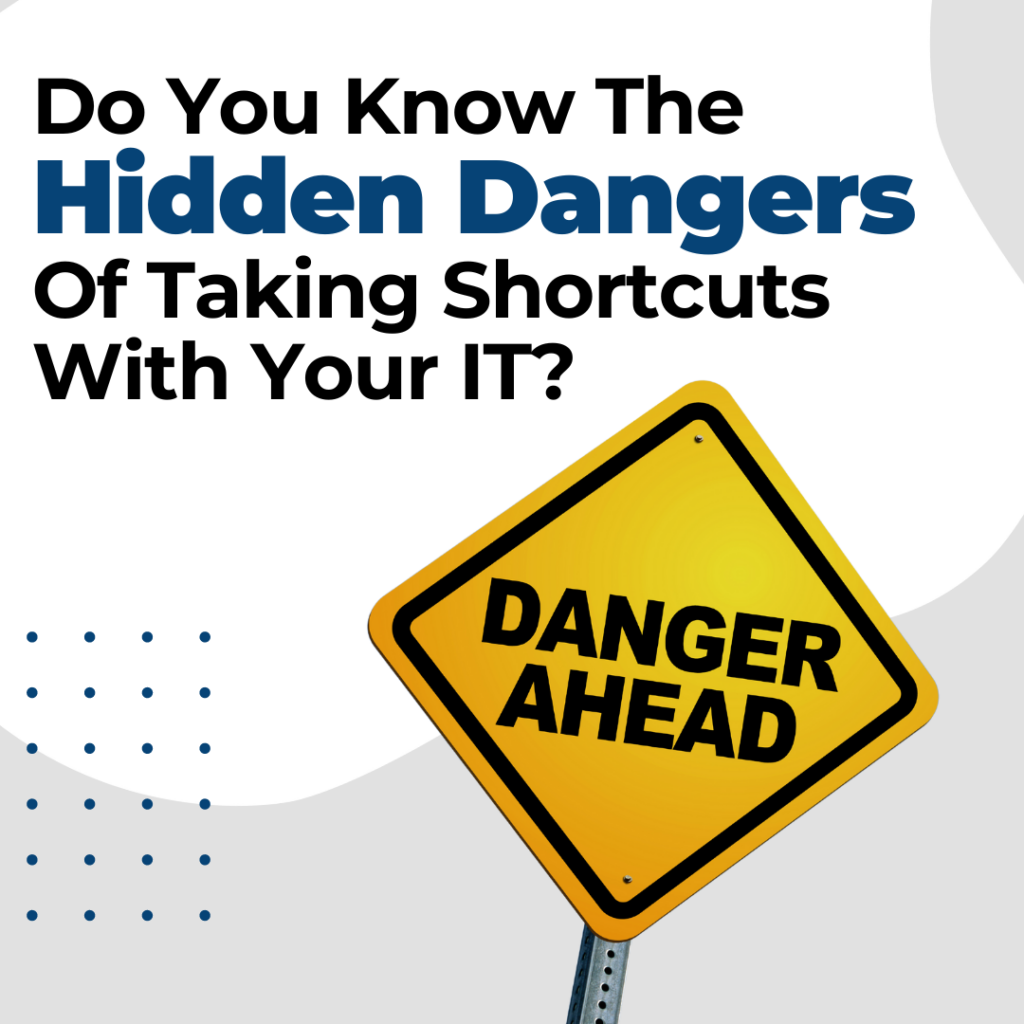The Hidden Dangers of Shortcuts in IT Security for Medical Practices
In the demanding environment of healthcare, where patient care is the top priority, it’s understandable that medical practices might look for shortcuts in other areas, such as IT security. However, as recent studies and past experiences have shown, taking the easy way out can lead to serious, sometimes catastrophic, consequences.
For instance, consider a study conducted by the National Cancer Institute, which found that individuals who took daily multivitamins had a 4% higher mortality rate than those who didn’t. This counterintuitive result highlights the dangers of assuming that quick fixes can substitute for comprehensive, thoughtful solutions. Just as a multivitamin can’t replace a balanced diet, a basic, off-the-shelf IT solution can’t provide the robust protection that a medical practice requires.
In the world of IT security, particularly in healthcare, shortcuts can be especially dangerous. Some practices might rely on free antivirus programs or basic firewall software, believing these tools are enough to keep them safe. Others might delegate IT management to a staff member with limited tech expertise, thinking that any IT support is better than none. Unfortunately, these shortcuts often leave practices vulnerable to cyber threats.
The healthcare industry is a prime target for cybercriminals because medical practices hold vast amounts of sensitive patient data. Even small practices are at risk, as hackers know that smaller organizations often lack the sophisticated defenses of larger hospitals. A data breach in a medical practice doesn’t just result in financial loss; it can lead to HIPAA violations, legal liabilities, and, most critically, a loss of patient trust.
Another common mistake is failing to plan adequately for IT needs, leading to uncontrolled costs and operational disruptions. IT is complex, and without a strategic plan, practices can find themselves overwhelmed by unexpected expenses or technical problems that slow down operations and compromise patient care.
But not all shortcuts are bad. Partnering with a managed services provider (MSP) that understands the unique challenges of healthcare IT can be the best “easy button” a practice could press. An MSP with healthcare expertise can help a practice achieve compliance, ensure data security, and improve operational efficiency without the stress of managing IT in-house.
Choosing the right IT partner is crucial. Just as medical professionals need to be thoroughly vetted, so too should the experts responsible for your IT infrastructure. History is full of examples where trusted professionals led their clients astray—whether it was through harmful medical practices like lobotomies or financial scams like Madoff’s Ponzi scheme. To avoid such pitfalls, it’s essential to ask the right questions, check references, and ensure that your IT provider has a proven track record in the healthcare industry.
At Empowering Technology Solutions, we specialize in delivering tailored IT services for medical practices. We understand the critical importance of safeguarding patient data and ensuring that your practice’s IT systems are robust, secure, and compliant with all relevant regulations.
If you’re ready to move beyond shortcuts and secure your practice’s future, we’re here to help. Contact us at (702) 879-7111 or click here to schedule your FREE Cyber Security Risk Assessment today. Your patients trust you with their health—trust us with your IT.

